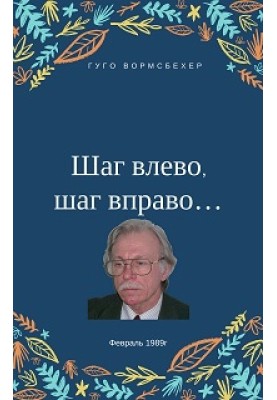Step left, step right... (Non-anniversary notes on Soviet German literature)
 Instant download
Instant download
after payment (24/7)
 Wide range of formats
Wide range of formats
(for all gadgets)
 Full book
Full book
(including for Apple and Android)
1989 is a jubilee year for us, Soviet Germans: it marks the 225th anniversary of the birth of our people. In 1764, the first German colonists arrived, at the invitation of the tsarist government, from Germany to the Volga, and the day of their arrival in the empty Trans-Volga steppe became the birthday of a new people on Earth, a people who had been called “Russian Germans” for one hundred and fifty-three years and now for seventy for two years it was called “Soviet Germans.” In the bare steppe, our ancestors had to somehow survive the coming winter. There were few building materials, especially the promised houses, so we started with dugouts. Years and decades passed before people moved into wooden and brick houses. At the end of the 19th and beginning of the 20th centuries. thousands and thousands of our grandfathers and great-grandfathers had to repeat that initial stage of our history: lack of land forced them to move to Siberia, Kazakhstan, and the Orenburg region. We were getting ready for a long journey by the summer, so we again found ourselves in new places on the eve of autumn and winter, and again we had to start with dugouts. For the third time (not counting “dekulakization”), almost all of us had to start from the “zero cycle” million Soviet Germans in 1941, when, accused by the Decree of the Presidium of the Supreme Soviet of the USSR of aiding fascism, they, with the exception of those already under occupation, were evicted from the European part of the country and from the Volga to the same pain-filled, long-suffering Siberia and to vast Kazakhstan. This third beginning was the most difficult of all, because people were no longer invited welcome “guests”, not economic “hope” for the wild lands, but “accomplices of the enemy”, and did not receive help as before, but were deprived of even own property. Apparently, the philosophical spiral of development really exists, only our history has made a certain amendment to this law: processes are repeated, but not necessarily at a higher level...
Data sheet
- Name of the Author
- Гуго Вормсбехер Густавович
- Language
- Russian














